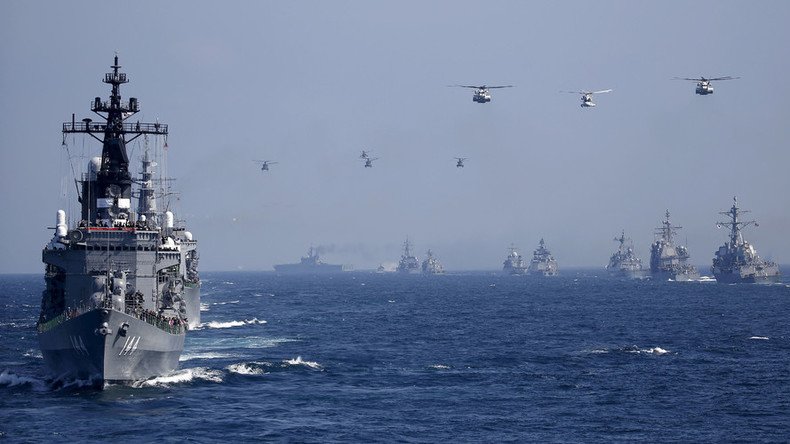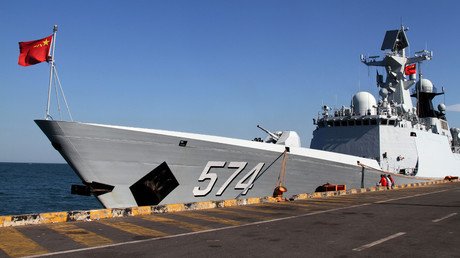‘Red line’: China warned Japan against joining US freedom of navigation stunts

Beijing warned Tokyo of a harsh response if it ever crossed a “red line” in deciding to sail with US warships near disputed waters surrounding China’s artificially reclaimed islands under the pretext of the Freedom of Navigation principle, Japanese media reported.
The warning to Japan reportedly came just ahead of the Hague international arbitration court’s ruling over the disputed South China Sea islands which Beijing continues to claim, despite a verdict which stripped China of the disputed territory.
Tokyo will “cross a red line” if Japan’s Self-Defense Forces sail with the Americans, Chinese Ambassador to Japan Cheng Yonghua allegedly told a Japanese official in Tokyo, Kyodo reported citing a source.
Japan should not take part in a “joint military action with US forces that is aimed at excluding China in the South China Sea,” Cheng is reported to have told Japanese officials late in June. “(China) will not concede on sovereignty issues and is not afraid of military provocations.”
According to the source, the official reassured the ambassador that Japan had no plans to join the US sails, which have intensified lately by constant American warship maneuvering near artificial islands that China has built in the South China Sea.
Freedom of Navigation (FON) has been part of an American policy under the Law of the Sea (LOS) Convention to exercise its navigation and overflight rights and freedoms since 1983. China has repeatedly warned against such provocations.
The tense diplomatic exchange took place amid another territorial dispute between China and Japan over the Tokyo-administered Senkaku (Diaoyu) Islands which China claims as their own.
Earlier this week, Japanese media reported that China continues to expand military infrastructure next to the disputed waters, erecting a military pier on Nanji Island, one of 52 islands in the Nanji chain that are part of China’s Zhejiang Province.
To counter the perceived Chinese threat, Tokyo is seeking a record defense budget of 5.16 trillion yen ($51 billion) for next year to strengthen the Japanese coast guard near the disputed waters with China. Part of the funding will also be spent on neutralizing the North Korean threat by deploying PAC-3 missile defense system and the joint Japanese-US production of the Block IIA version of the Standard Missile-3 system. Japan also seeks to purchase an upgraded version of the F-35 stealth fighter.
Meanwhile, Beijing has finished long-range combat drill in the Sea of Japan with its East China Sea Fleet by launching simulated attacks to improve the capability of continuous strikes at maximum range, CCTV reported. The exercise also included air force simulation of air-to-ship missile launches against enemy vessels. The Chinese navy called the drill “routine” and in accordance with international law.
Mounting Tensions: Chinese Navy holds deep-sea combat drills in Sea of Japan https://t.co/LrKGSTfywl
— RT (@RT_com) August 19, 2016
Tensions in the area were heightened even further when four Chinese coastguard ships sailed into territorial waters surrounding the disputed islands in the East China Sea on Sunday morning. The Japanese foreign Ministry responded by issuing a note of protest against the “incursion” and the violation of Japanese sovereignty.
“Despite Japan’s repeated strong protests, the Chinese side has continued to take unilateral actions that raise tensions on the ground, and that is absolutely unacceptable,” the statement said.
It is reported that since the beginning of the month, Japan lodged at least 32 protests over about 30 intrusions by Chinese vessels in the territorial waters.













